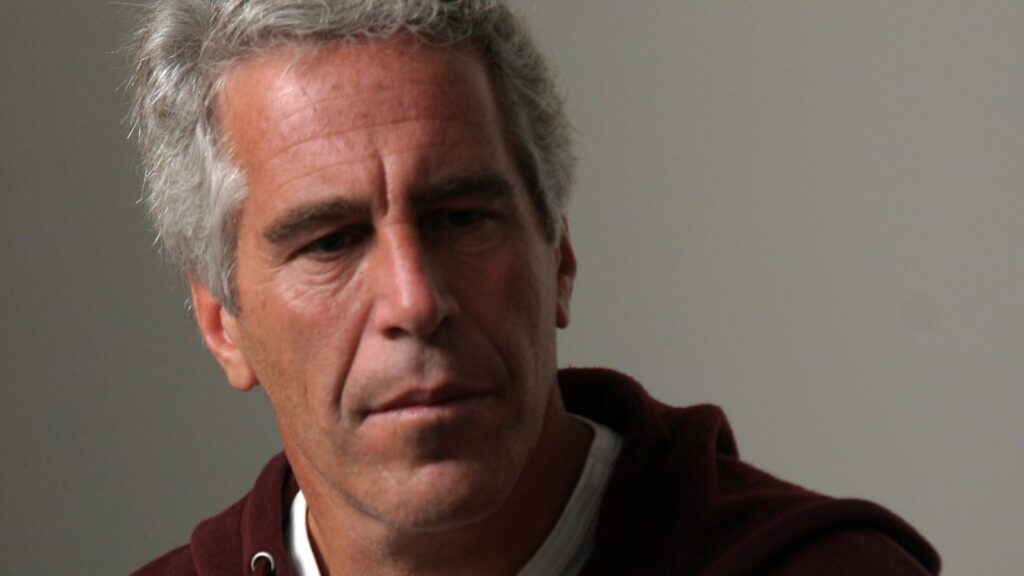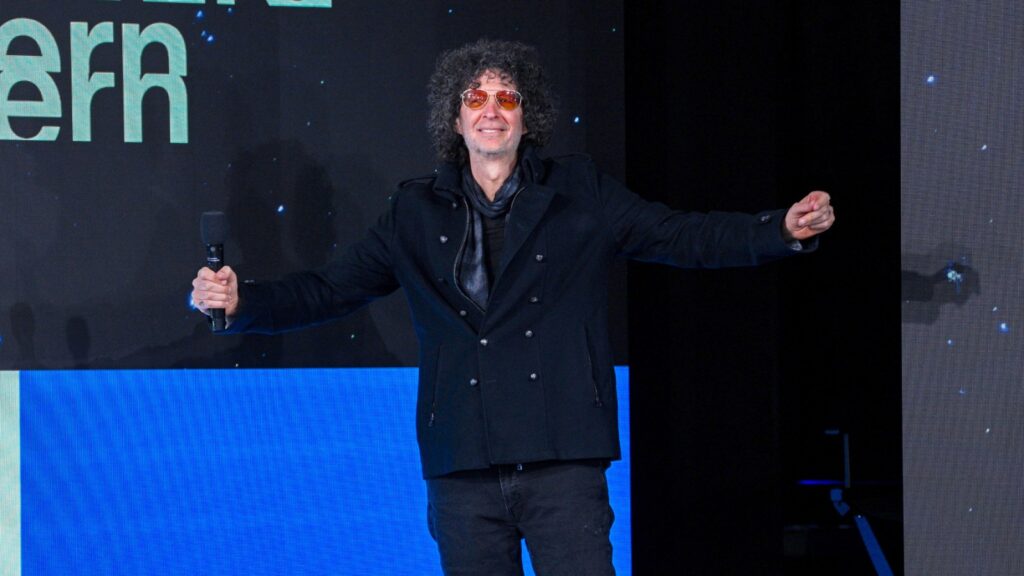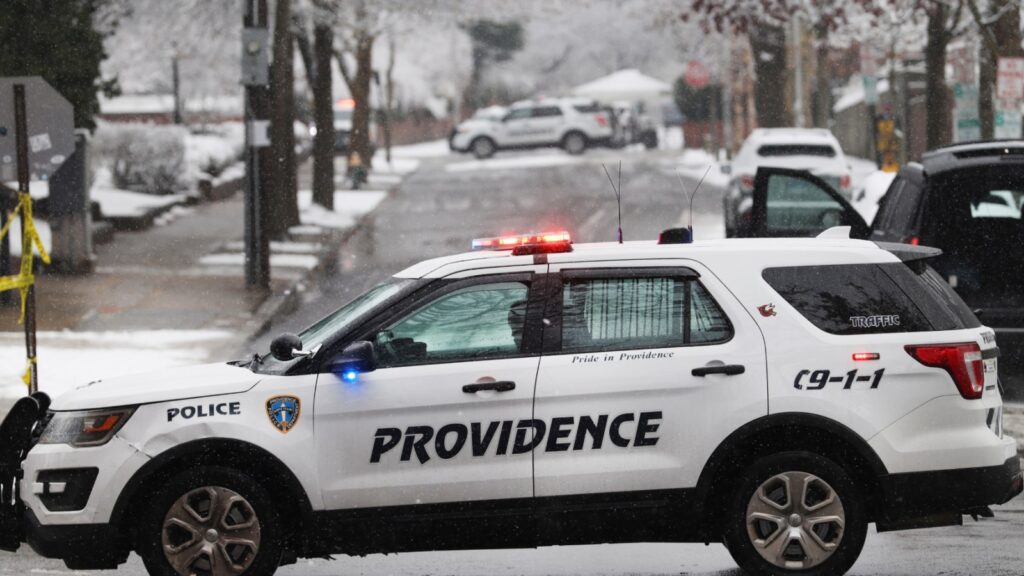Adam McKay Explains His Made-You-Look Take on Climate Activism

Adam McKay would like to bring to your attention that the world is burning. “We’re living in a ridiculous farcical comedy, but the consequences are real,” says the director who turned a planet-ending comet into a metaphor for climate change in his film Don’t Look Up. “We can’t seem to get out of this cultural framework that we’re trapped in, that just won’t allow us to take in the enormity of it.”
Last year, McKay launched Yellow Dot Studios, which produces videos and other media with sharp humor to spur urgency toward the climate crisis. He also sits on the board of directors for Climate Emergency Fund, a nonprofit that funds organizations committed to nonviolent climate activism. Among those groups is Climate Defiance, which targets politicians and corporate titans promoting and profiting from the fossil-fuel industries driving global warming to dangerous levels. Last year, the group hijacked events featuring Biden administration officials and shut down a gala honoring notorious ExxonMobil CEO Darren Woods. McKay calls these kinds of made-you-look tactics “disruptive activism.”
We caught up with McKay to talk about his activism, the upcoming election, that Margot Robbie scene, and the best- (and worst-) case scenario on climate change.
You’ve praised the activist group Climate Defiance for helping expose what you see as the passivity of the Democratic Party when it comes to protecting our environment. What do you think of the Biden administration’s efforts?
I think they’ve been fairly terrible and disingenuous. When the IRA [Inflation Reduction Act] was passed, there were those great tax breaks for renewable energy in there, but there were also huge carve-outs for Big Oil. I would love to see someone do the math on [whether] this administration is carbon neutral, positive, or negative.
Do you see the subject of climate change being a big factor in how the upcoming election plays out?
I don’t think it’s on the radar for either political party. I think the donor money from Big Oil, automotives, the travel industry, it’s just pulled so much sway. Corruption is corruption, but when [it] becomes a culture, that’s when it really gets powerful.
The only thing that I’ve experienced that’s really moved the needle is old-fashioned, disruptive activism. I had an aha moment when I really got involved in it, because the second you look at history, the main ingredients of all huge change — whether it’s civil rights, independence, the labor movement — it’s always disruptive activism.
How does your work with the Climate Emergency Fund and Climate Defiance help support this goal of using the art of the uncomfortable to move public opinion?
Similarly, in the sense that both approaches are human, muscular emotional approaches. I think the, quote, truth, has been sold and arbitrated and parsed so much over the past — really since the rise of neoliberalism over the past 40 years — that we need to go to that muscular sense. It’s why I decided to make Don’t Look Up a big, farcical comedy, because I realize you can’t fake laughter.
A great example is the Air Force [serviceman] who self-immolated as a protest against what’s going on in Gaza. You can’t fake that, it’s so sincere, his mission statement was so clear. That’s a very extreme example. But a similar dynamic happens when you see young people getting arrested for blocking the entrance of a bank that finances oil extraction. Whether people know it consciously or not, the question starts to rise up: Why would anyone do this? Why would they get arrested? Why would they put their life in unpleasant turmoil unless something was going on? And you’ll see corporate media create distractions; they’ll minimize, they’ll question their tactics — sort of feign obliviousness.
It’s incredible stuff, and it’s gaining momentum. It’s gaining power. It’s starting to break through. The majority of my efforts now are focused toward disruptive activism and making things through Yellow Dot.
In your film The Big Short, Margot Robbie explains the stock market — while in a bathtub. How do you use this comic tool in the realm of activism and your work with Yellow Dot?
Every single day, we’re getting blasted with advertising, whether it’s pop-up ads, TV ads, billboards. So we’re under a constant bombardment of feelings, emotional manipulation. We’re being hit with sexy images, angry images, peaceful images — all as a way to deceive us to make us buy stuff.… It was just an opportunity to use that language in a way that was counter to what it’s usually used for, to point it out, to get a laugh, and then get to the real information. The times where we’re really able to name it, we get tremendous reactions
I ask this question because of that big Don’t Look Up ending: What is your best-case scenario for the world and worst-case scenario?
Best case is weather events are so strange and so large that it knocks people awake, they come out of this fugue state they’ve been in. I think regular people are actually surprisingly clued in, but the big thing they’re missing is the urgency. And off of that, we go into full-on, emergency-footing World War II–style mobilization. We create massive worldwide research projects about how to remove carbon at scale, how to time it right.… We come up with emergency water plans, food-delivery plans, ways to protect crops.
The worst, the more pessimistic view, is that these weather events get larger, more bizarre, more destructive, and the majority of us never wake up; that these systems … are so entrenched in that corrupt culture that it’s not a temporary state; it’s more like brain damage, and they’re not able to wake up. In which case, you’ll start to see fracturing little communities scrambling to stay alive.
There will never be a success moment, but we just look at it like breadcrumbs. If they’re out there, there may be a moment where those breadcrumbs become kind of a meal. There’s plenty to be done, and our motto is “Constantly Onward.”




